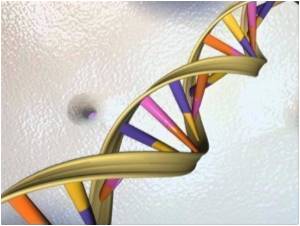
"This was certainly an unexpected finding," said Schneider.
"It is rather uncommon for one gene to have two very different and very significant functions that tie together control of aging and inflammation. The two, if not regulated properly, can eventually lead to cancer development. It's an exciting scientific find," he stated.
For decades, the scientific community has known that inflammation, accelerated aging and cancer are somehow intertwined, but the connection between them has remained largely a mystery, Dr. Schneider said.
What was known, due in part to past studies by Schneider and his team, was that a gene called AUF1 controls inflammation by turning off the inflammatory response to stop the onset of septic shock. But this finding, while significant, did not explain a connection to accelerated aging and cancer.
When the researchers deleted the AUF1 gene, accelerated aging occurred, so they continued to focus their research efforts on the gene. Now, more than a decade in the making, the mystery surrounding the connection between inflammation, advanced aging and cancer is finally being unravelled.
Advertisement
"AUF1 is a medical and scientific trinity. Nature has designed a way to simultaneously turn off harmful inflammation and repair our chromosomes, thereby suppressing aging at the cellular level and in the whole animal."Dr. Schneider said.
Advertisement
The study appeared online ahead of print in Molecular Cell and is scheduled for the July 13 print issue.
Source-ANI















